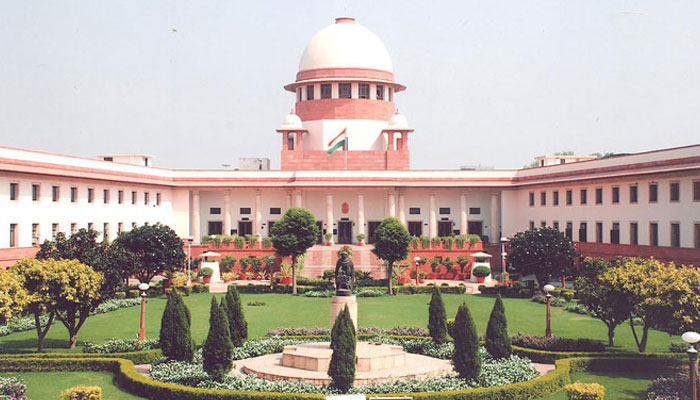-
Tips for becoming a good boxer - November 6, 2020
-
7 expert tips for making your hens night a memorable one - November 6, 2020
-
5 reasons to host your Christmas party on a cruise boat - November 6, 2020
-
What to do when you’re charged with a crime - November 6, 2020
-
Should you get one or multiple dogs? Here’s all you need to know - November 3, 2020
-
A Guide: How to Build Your Very Own Magic Mirror - February 14, 2019
-
Our Top Inspirational Baseball Stars - November 24, 2018
-
Five Tech Tools That Will Help You Turn Your Blog into a Business - November 24, 2018
-
How to Indulge on Vacation without Expanding Your Waist - November 9, 2018
-
5 Strategies for Businesses to Appeal to Today’s Increasingly Mobile-Crazed Customers - November 9, 2018
India top court refers petition on gay sex to a bigger bench
On February 2, the Supreme Court of India will hear a curative petition regarding its own judgement regarding Section 377.
Advertisement
The Supreme Court on Dec 11, 2013 set aside a landmark pro-LGBT judgement of Delhi High Court in 2009, by ruling that homosexuality would continue to remain illegal in the country and would not be constitutionally invalid. India’s top court is expected to hear a final challenge today to a colonial-era ban on gay sex, a case closely watched by rights campaigners in the world’s biggest democracy. They had submitted that criminalizing gay sex amounts to violation of fundamental rights of the LGBT community.
The petitioners include NGO Naz Foundation, which works for the LGBT community.
“The judgement was reserved on March 27, 2012 but the verdict was delivered after around 21 months and during this period lots of changes took place including amendment in laws which were not considered by the bench which delivered the judgement”, the plea had said. Ironically, the Court’s dedication to a textual analysis in light of the remarkable April 2014 National Legal Services Authority versus Union of India judgment, which recognised transgender people as a third-gender, could result in its continued denial that Section 377 targets LGBTQIs and lead to a defense of the law in order to prosecute child sex-abuse and other non-consensual, non-procreative sexual acts.
Providing its input on the existing debate on the rights of the LGBT (Lesbians, Gays, Bisexuals, Transgenders) community, the Madras High Court recently stated that the Centre must consider according LGBT community special status and recognizing them as a separate group for safeguarding their rights, including the right of privacy.
The Supreme Court has allowed just two curative petitions to date. “It had also filed a review against the judgment of Supreme Court”.
Advertisement
The Delhi High Court had on July 3, 2009 legalized homosexual acts between consenting adults by overturning the 149-year-old law finding it unconstitutional and a hurdle in the fight against HIV/AIDS.





























